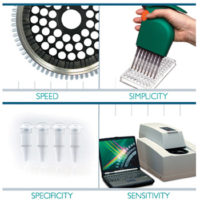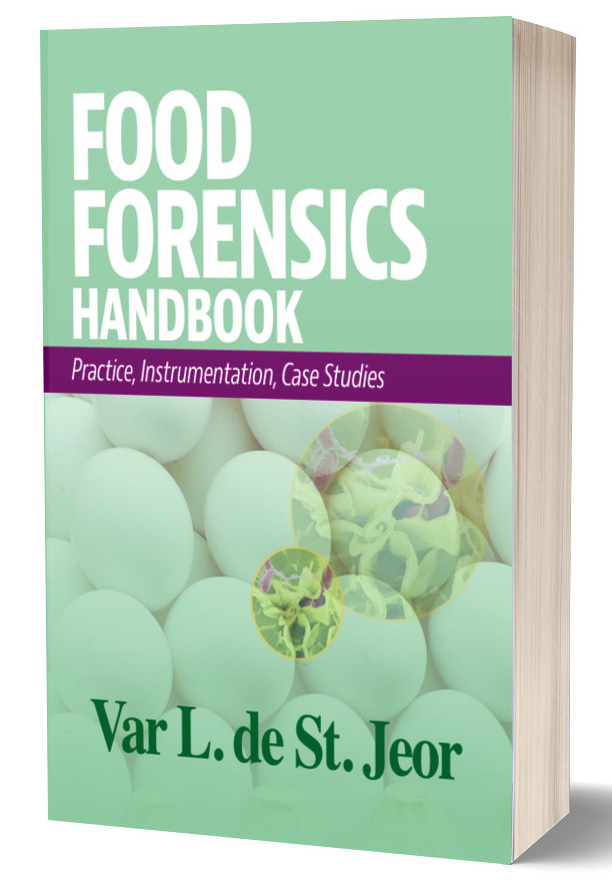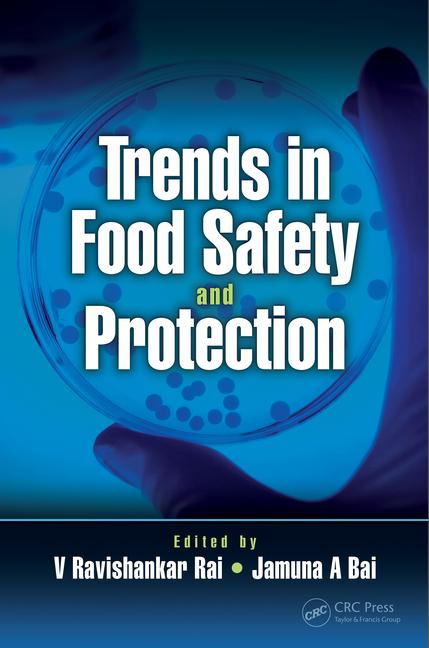Advanced Technology for Rapid Pathogen Detection

Advancements in technology have led to unprecedented speed and ease in the definitive detection of specific pathogens, such as Salmonella or Listeria, which are of particular concern to the food industry. These advancements have brought DNA-based testing down to a level of simplicity and price point that puts it in reach of many smaller processors.
The latest foodborne pathogen technology uses an innovative isothermal DNA amplification process to amplify DNA to detectable levels, and fluorescent molecular beacon technology for detection of the target pathogen. The new technology provides results after as little as 10 minutes of reaction time. Other commercially available molecular amplification tests require up to 3 hours of reaction time.
The amplification mechanism involves binding of an oligonucleotide “template” to a specific sequence of target DNA or RNA. The template contains a recognition site for a specific endonuclease. The nicked strand is recognized as damaged and repaired by the action of a thermostable DNA or RNA polymerase, displacing the original strand with the newly synthesized repaired portion.
This displaced DNA or RNA “product” then binds to a second template and the same reactions lead to formation of a second product. The second product is homologous to the target sequence and is detected using a specific molecular beacon probe. A fluorescent signal is generated in real time, with amplification and detection complete within as little as 10 minutes. The entire assay is conducted at a constant temperature of 56 °C using a temperature-controlled fluorescence detection instrument. Assay software analyzes the fluorescent signal over time; a data interpretation algorithm interprets results as negative, positive or invalid based on baseline, rate-of-change and other criteria.
The new pathogen detection technology is currently available under the brand ANSR™ to detect Salmonella and Listeria in food and environmental samples. ANSR stands for amplified nucleic single temperature reaction, and Neogen has received Performance Tested Methodsm Certification (Number 061203) from the AOAC Research Institute for its ANSR Salmonella assay, and a similar certification is pending for its ANSR Listeria assay.
In comparative testing for the AOAC validation study, there were no statistically significant differences in the number of positive results for five different food samples obtained with the ANSR and USDA-FSIS reference culture methods. In the testing of five different environmental surfaces, there were no statistically significant differences in results by the ANSR and FDA/BAM reference methods.
ANSR in Action
Michigan Turkey Producers has been a longtime example of exceptional food safety. Michigan Turkey Producers was awarded the 2009 Food Quality Award and the 2009 Environmental Steward Award. Thus, when Tina Conklin, quality assurance manager at Michigan Turkey Producers, was approached by Neogen for another “easy-to-use” rapid pathogen test, she was skeptical that a new system would offer significant advantages in pathogen detection. However, the simple three-step workflow, the 10-minute assay time for Salmonella spp. and the 18-minute assay time for Listeria spp. changed her mind.
Conklin agreed to perform rigorous evaluation of the ANSR system. Rapid results allow Michigan Turkey Producers to implement interventions faster and ship products hours ahead of any other DNA-based assay. Using ANSR’s definitive DNA test, the samples correlated 100% to traditional methods for Michigan Turkey Producers.
The ANSR system was designed to combine molecular-level accuracy with a scalable low-cost instrument and a methodology that can be easily incorporated into any testing laboratory’s existing workflow. The system’s small bench top footprint and extremely simple procedure make it an easy fit in any laboratory setting.
Combined with ANSR’s single enrichment step, Neogen’s new pathogen detection method for Salmonella can provide definitive results in as little as 10 hours from the time the sample is taken, and its method for Listeria can provide definitive results in as little as 16 hours. Additional tests for the ANSR platform currently are in development and are expected to be launched in the coming months.
neogen.com
Looking for a reprint of this article?
From high-res PDFs to custom plaques, order your copy today!








